Hilarious photos reveal the world's ugliest animals
Ugly but strangely cute?
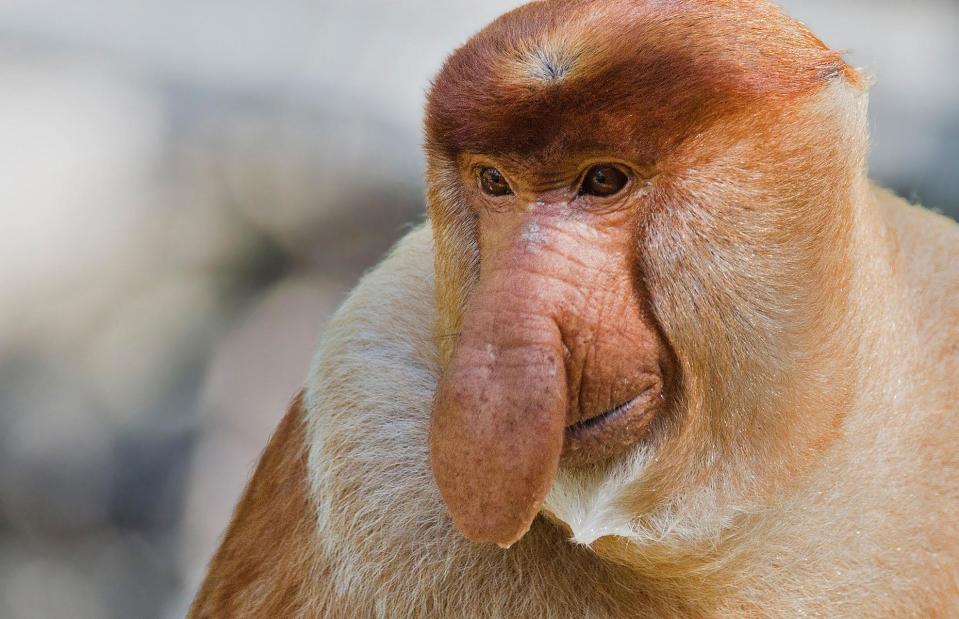
blickwinkel/Alamy Stock Photo
Welcome to the world’s most unattractive animals, many so ugly that only a mother could love them. But before you rush to judgement, understand that many of the features we find repulsive are simply adaptations that help them survive in very challenging environments.
Read on to see the world's most odd-looking animals, and learn why they look the way they do...
Tarsier
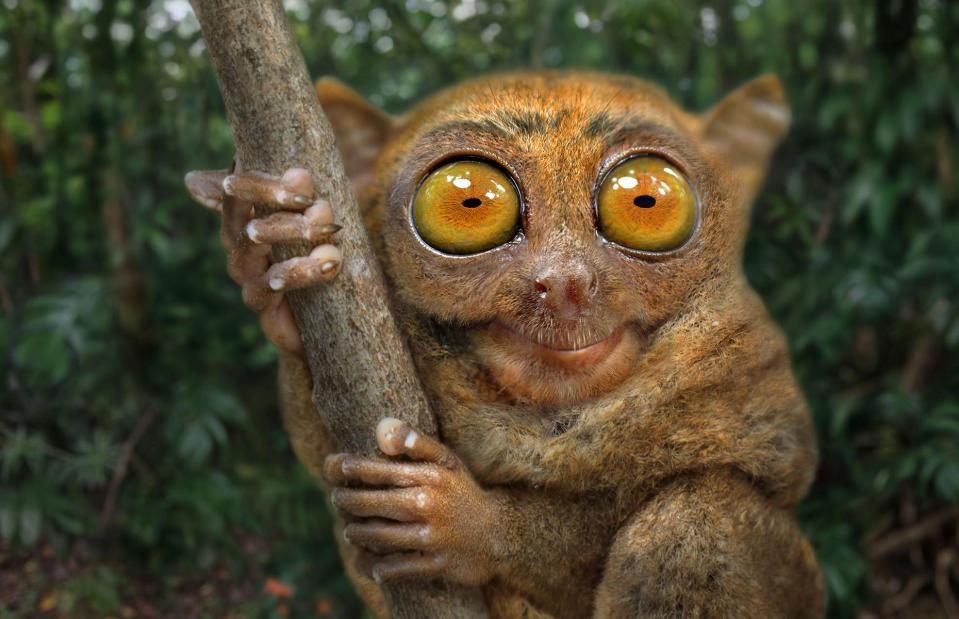
mauritius images GmbH/Alamy Stock Photo
In some ways, the tarsier is something of a looker. This species of leaping primate found on certain islands in Southeast Asia has some of the biggest eyes of any mammal. In fact, its eyes are even bigger than its brain, which uses most of its cognitive power to process the information flooding in from the tarsier’s enormous visual cortex. All to help the tarsier spend the night feasting on moths, cicadas and termites.
Andean Condor
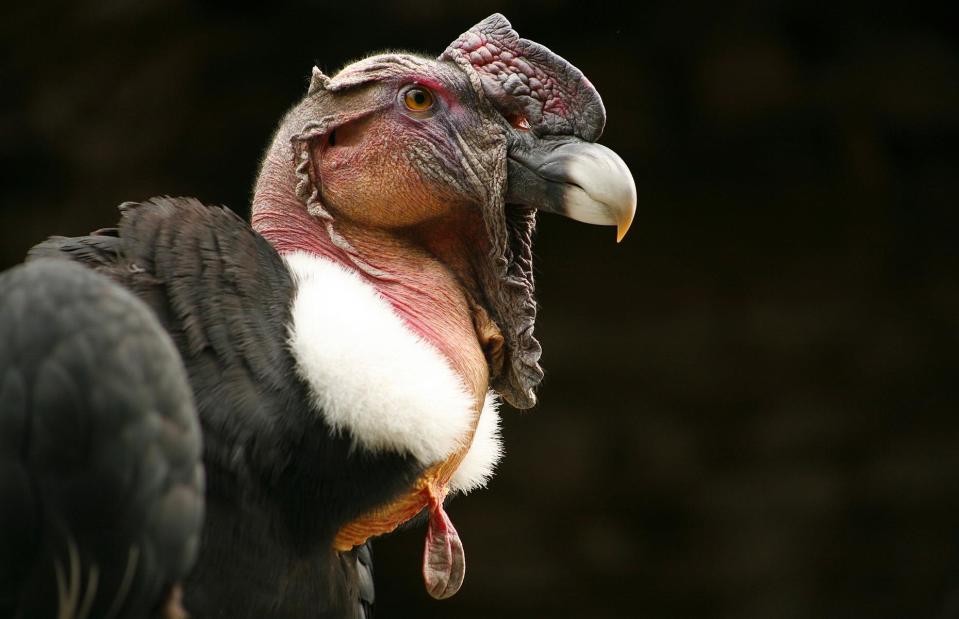
Avalon.red/Alamy Stock Photo
Weighing in at up to 15kg (33lbs), with an enormous 10-foot (3m) wingspan, the Andean condor is big and ugly. They are the largest birds in the world able to fly, and spend most of their time riding the wind currents in the Andes looking for carcasses to scavenge. Their diet also explains their startling bald heads – they allow them to reach right in for the juicy bits without soiling their feathers.
Cantor's Giant Softshell Turtle
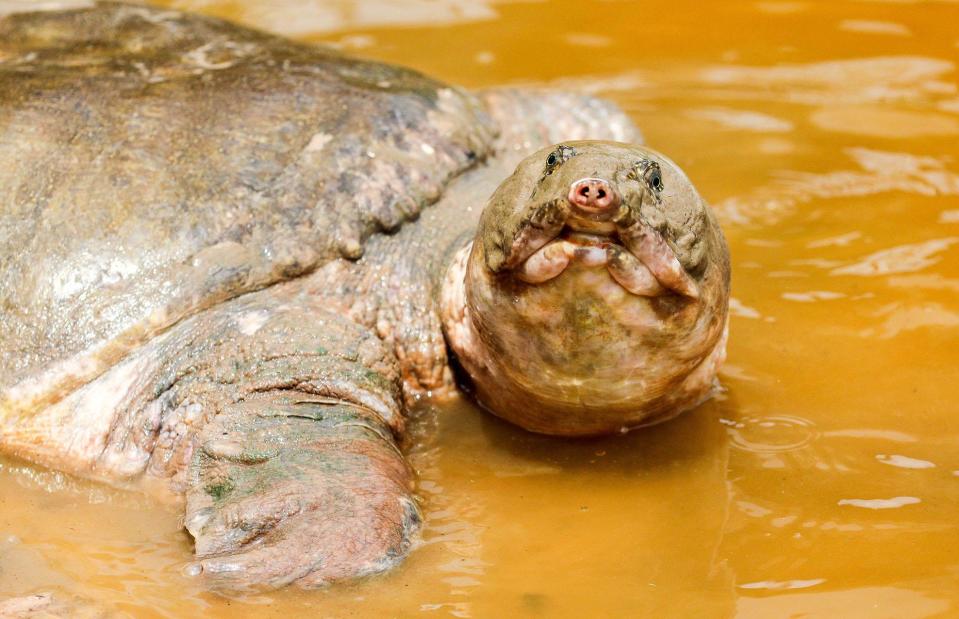
evenfh/Shutterstock
Soft-shelled and an unappealing shade of Mekong River brown, a Cantor's giant softshell turtle can grow up to 5.9 feet (1.8m) in length, and is thought to be the world's largest extant freshwater turtle. They can be found in the river swamps, estuaries and mudflats of Southeast Asia, particularly Cambodia. Indeed, it was the Cambodians who gave the creature its least flattering name. They took one look at its broad head, with eyes way too close to the tip of its snout, and called it 'frog head turtle'.
Bald Uakari
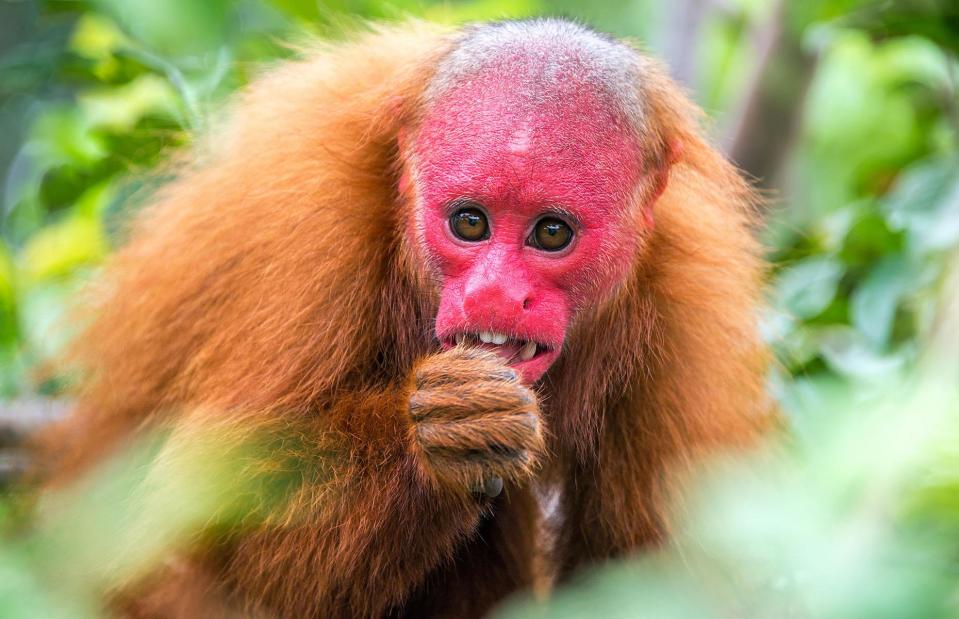
Jesse Kraft/Alamy Stock Photo
You’ve got to feel sorry for bald uakari monkeys. Not only do they have to go about their business in the Peruvian Amazon with a bad receding hairline, their faces are a throbbing red colour as well. Add to that one of the shortest tails in the monkey world and they’ve got their work cut out for them. At least their bright red faces help them attract a mate – perhaps because malarial or sick animals develop pale faces.
Marabou Stork
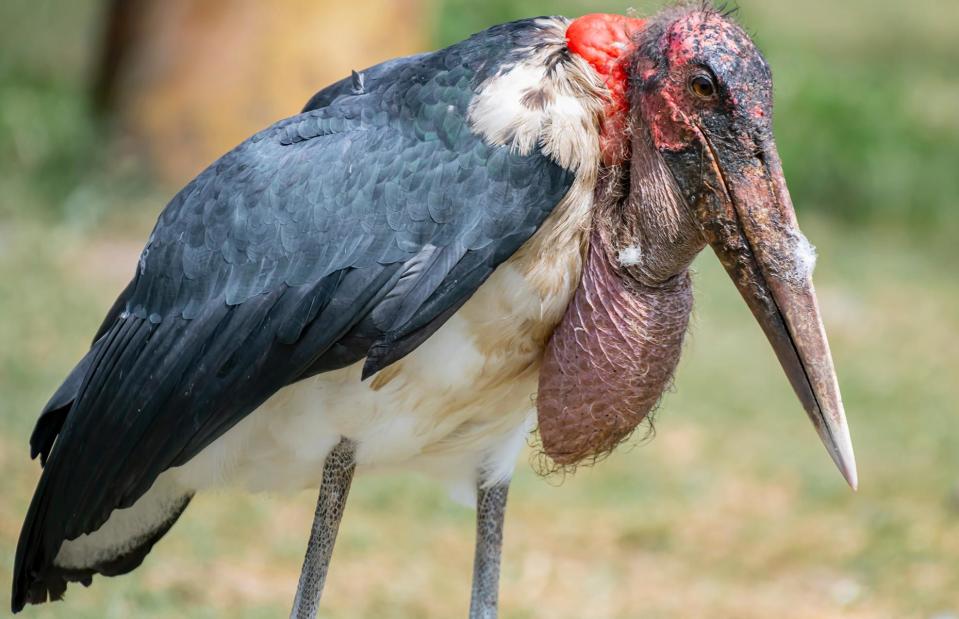
Pisit Rapitpunt/Shutterstock
They say you are what you eat. Well, marabous, the most unappealing members of the stork family, will happily tuck into termites, flamingos, small birds and mammals, human refuse and even dead elephants. You’ll see them hanging out with vultures and hyenas right across sub-Saharan Africa. And that repulsive, long, reddish pouch hanging from its neck? That’s used in courtship rituals – it helps the male marabou produce a low guttural noise that female marabous apparently find irresistible.
Blobfish
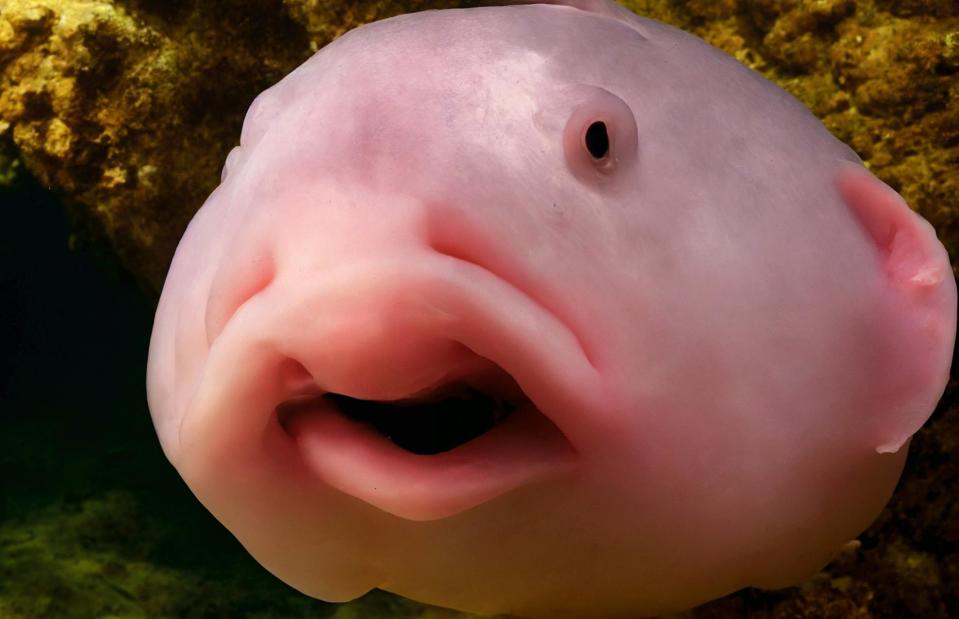
World-Wide-Photography/Shutterstock
Never has a creature been so aptly named. The blobfish is pale and gelatinous, with a droopy, downturned mouth and large, sagging nose. It is so unattractive that it was voted the 'world’s ugliest animal' at the British Science Festival in 2013. Other scientists say this is unfair. In its natural habitat, hundreds of metres under the sea, it looks like any other fish. But when dragged to the surface its bones and muscles are not strong enough to support it and it turns into a miserable pink lump. We’ve all had mornings like that.
Aye-Aye
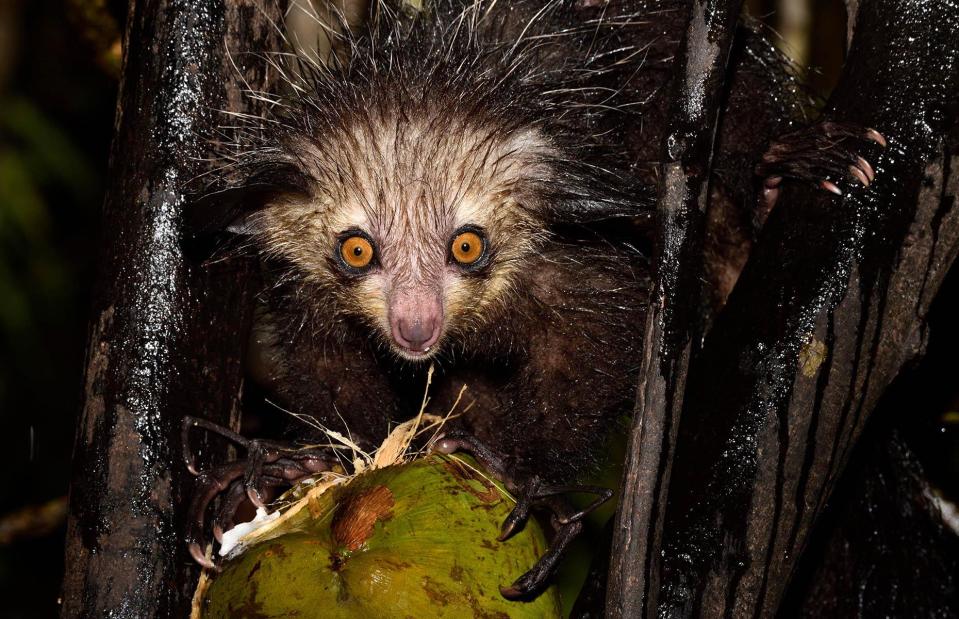
BIOSPHOTO/Alamy Stock Photo
These scary-looking members of the lemur family are regarded as an omen of ill luck in their native Madagascar, with some locals left terrified if they encounter one. Luckily, aye-ayes only come out at night and spend most of their time high in the rainforest canopy. The long, spindly witch-like fingers that are their most distinctive feature are also their most useful. Aye-ayes use them to find and fish out wood-boring insect larvae, and to scoop the flesh out of coconuts and other fruits.
Star-Nosed Mole
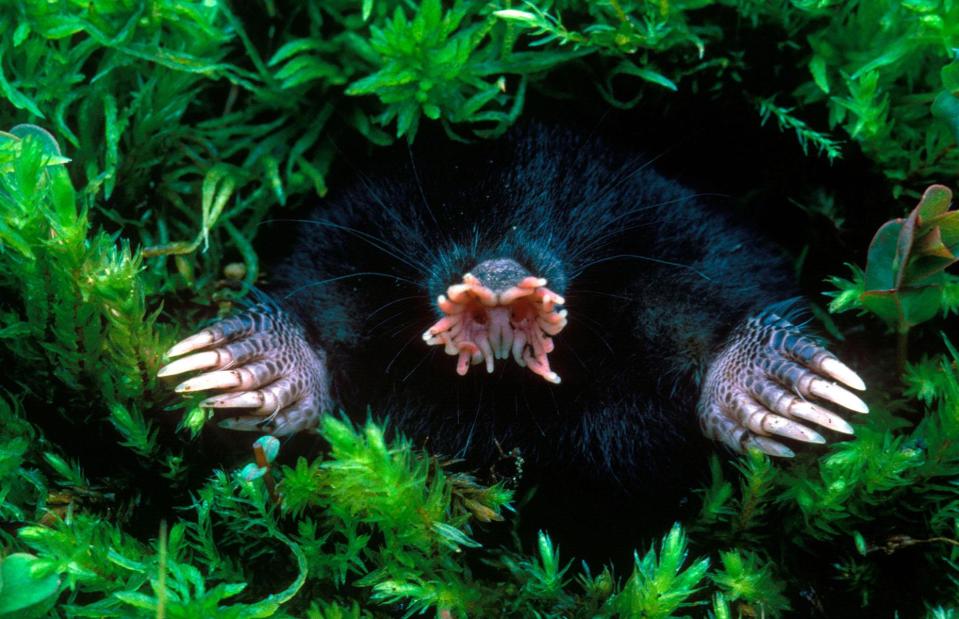
imageBROKER.com GmbH & Co. KG/Alamy Stock Photo
The most disconcerting thing about the star-nosed mole is that the star-shaped appendage on the end of its nose looks like it has a life of its own. The feathery fingers are constantly moving and probing, helping this extremely short-sighted creature navigate through damp, dark tunnels underneath the wetlands of eastern Canada and the northeastern United States. They also help the star-nosed mole be the world’s fastest eater, able to find and gobble down an insect in a quarter of a second flat.
Naked Mole-Rat
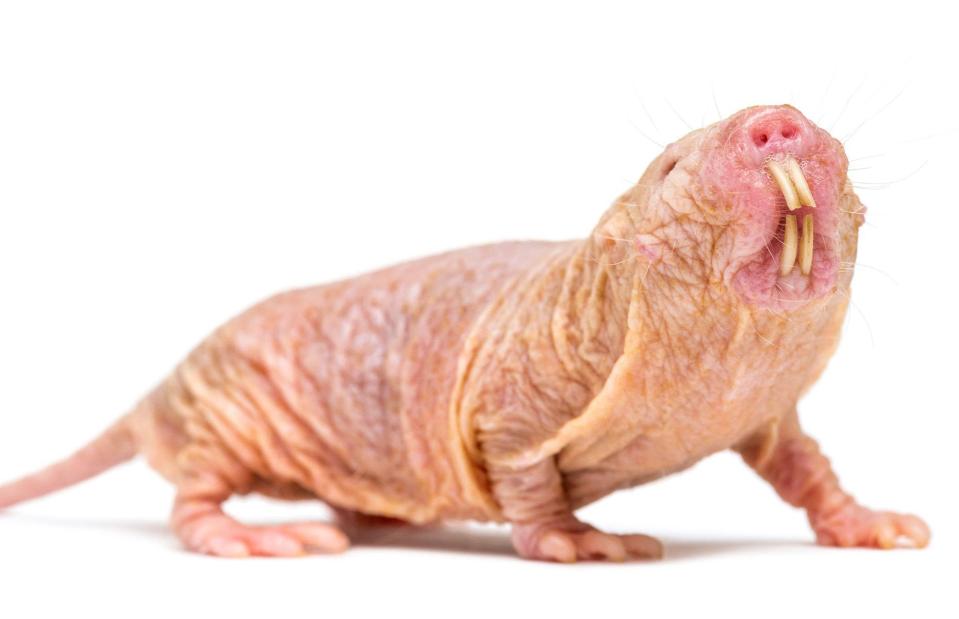
Life on white/Alamy Stock Photo
Unkindly nicknamed 'the living sausage', the naked mole-rat lives underground in the Horn of Africa and doesn’t need thick fur to survive. Instead it has a smattering of fine hairs, almost imperceptible to the human eye, that help it navigate the complex subterranean tunnels it calls home. Typically three to four inches (8 to 10cm) long, they live exceptionally long lives, are resistant to cancer and can move backwards as fast as they can move forwards.
Chinese Water Deer
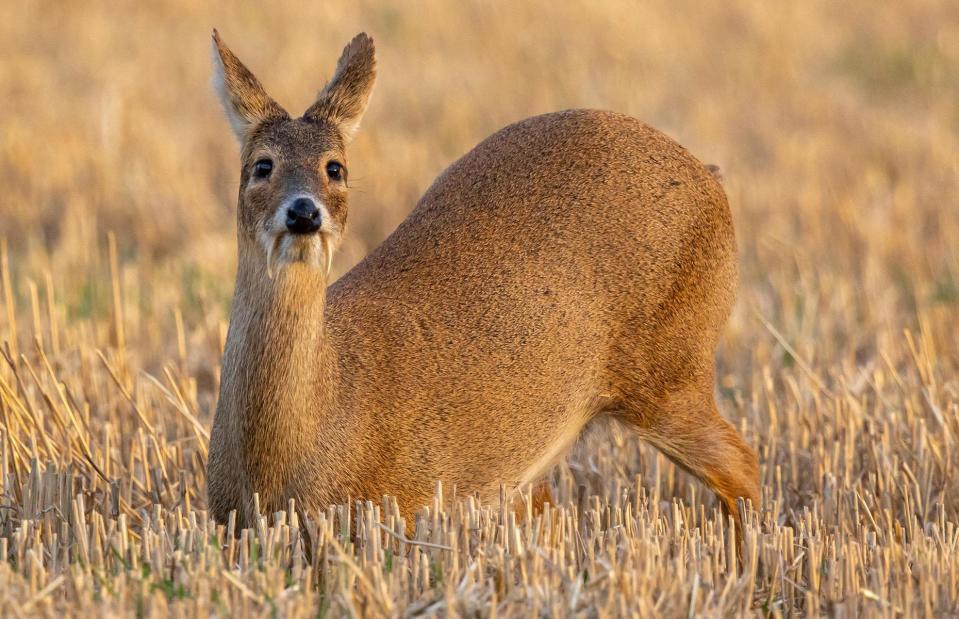
BIOSPHOTO/Alamy Stock Photo
Coming across a Chinese water deer in the wild can be quite startling. At first they look like any other sweet-natured deer. But on closer inspection you’ll notice that these natives of Korea and eastern China are packing fangs. Fear not, they haven't come to suck your blood. These elongated canine teeth are only used in territorial displays and the occasional fight in breeding season.
Southern Elephant Seal
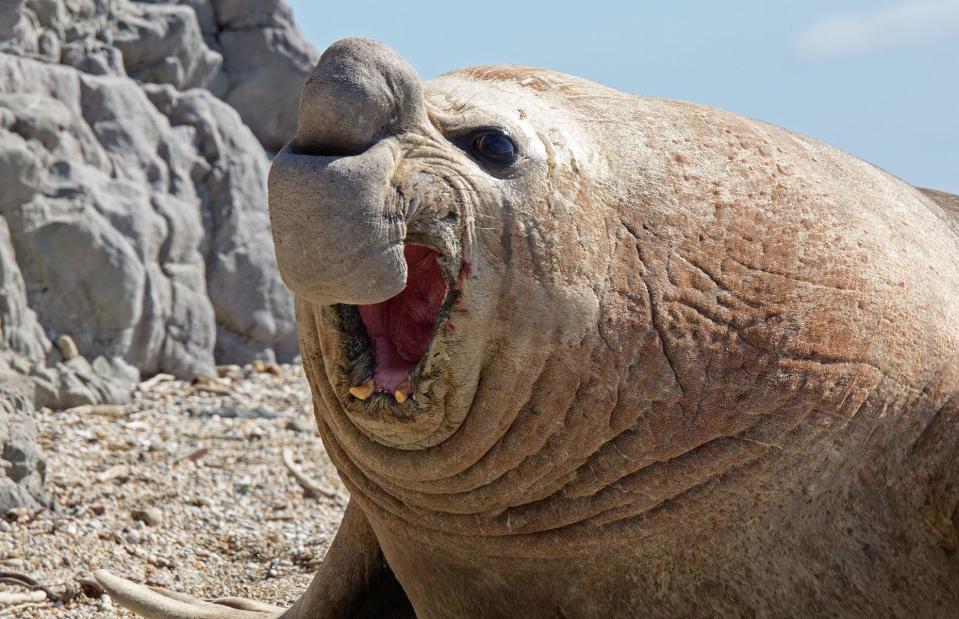
Michael Lidski/Alamy Stock Photo
Southern elephant seals take their name from the trunk-like noses that males develop as they become sexually mature. They spend most of their time in sub-Antarctic and Antarctic waters but come ashore during the breeding season to mate. The battles for mating dominance are violent and bloody, so most males bear vicious-looking wounds and scars. It’s not unusual to see that the biggest males with the biggest noses have the biggest harems of females.
Humpback Anglerfish
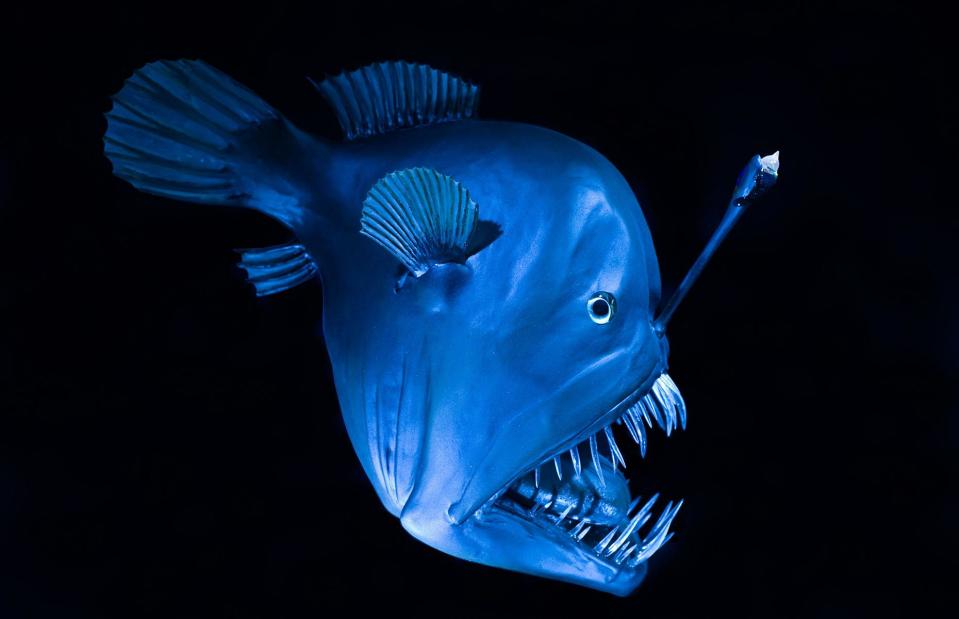
Helmut Corneli/Alamy Stock Photo
When you live in the inky darkness between 660 and 4,920 feet (200-1,500m) beneath the sea, looks don’t really matter. All you need is a bioluminescent spine that emits a diffused blue light to attract prey animals, and then a scary set of gnashers to munch on them. Regardless, they're considered one of the ugliest animals in the world, and enjoyed a minor antagonist role in the Pixar film Finding Nemo.
Saiga Antelope
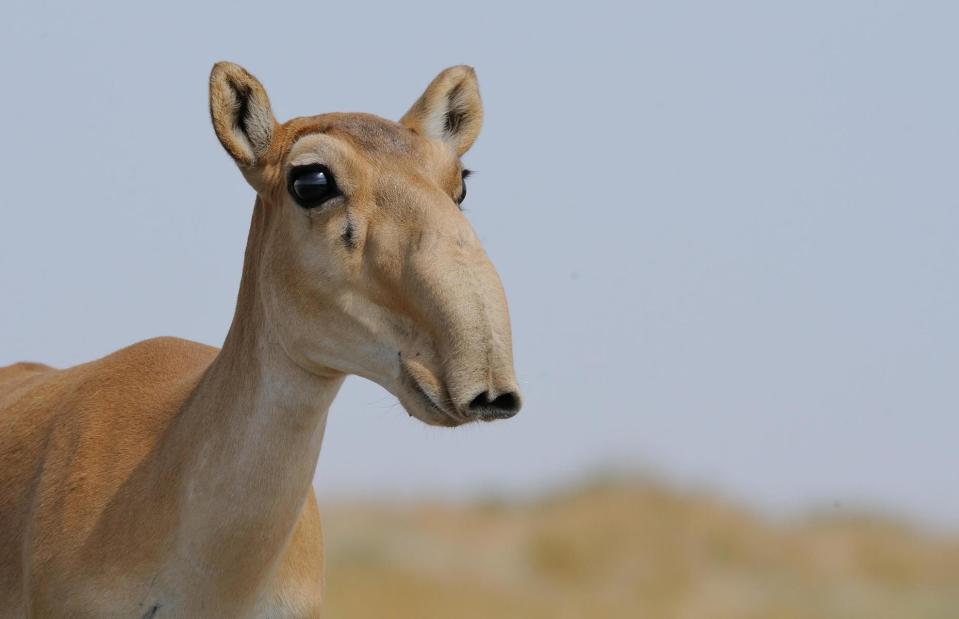
Victor Tyakht/Alamy Stock Photo
With its large, bulbous nose, the saiga is perhaps the ugly duckling of the otherwise beloved antelope family. But that ungainly nose has helped the saiga survive and thrive in the harsh steppes of Central Asia. It filters out dust and cools the blood during hot, dry summers, and acts as a radiator in winter to warm the cold air before it enters the saiga’s lungs. They can also eat plants that are poisonous to other animals. That has nothing to do with their noses, but it's a fun fact nonetheless.
Babirusa
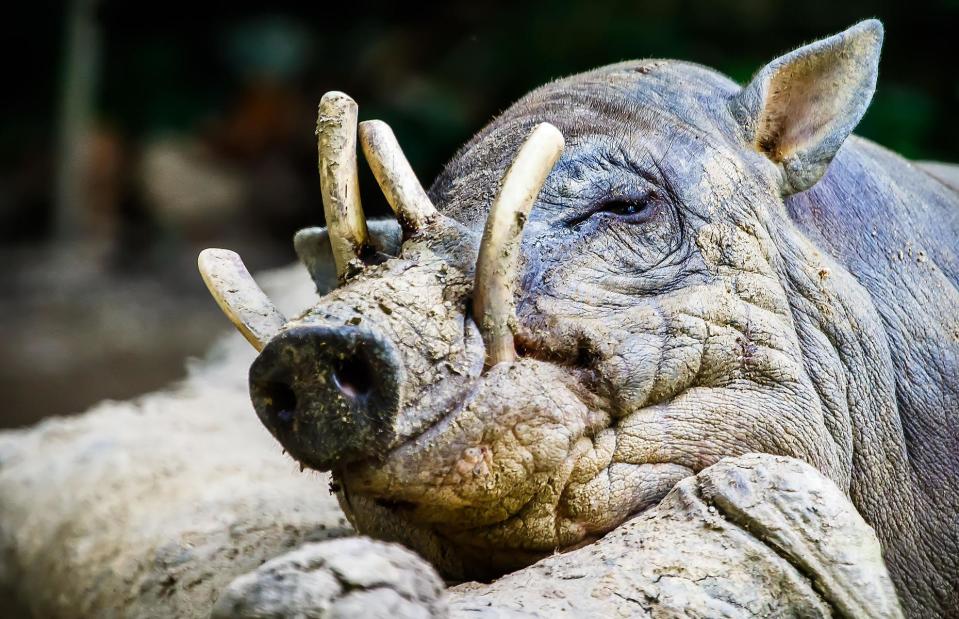
Zoonar GmbH/Alamy Stock Photo
Babirusa are found in the swamps and forests of Indonesia, where they're sometimes called 'deer pigs' because of the unfortunate tusks that grow from the upper jaw of males, piercing the skin of the muzzle and then curving backward, eventually into the forehead. The lower tusks are likely used for fighting, while the higher ones may be for defence. It is believed that babirusa could be the inspiration behind the country’s famous demonic masks.
Proboscis Monkey
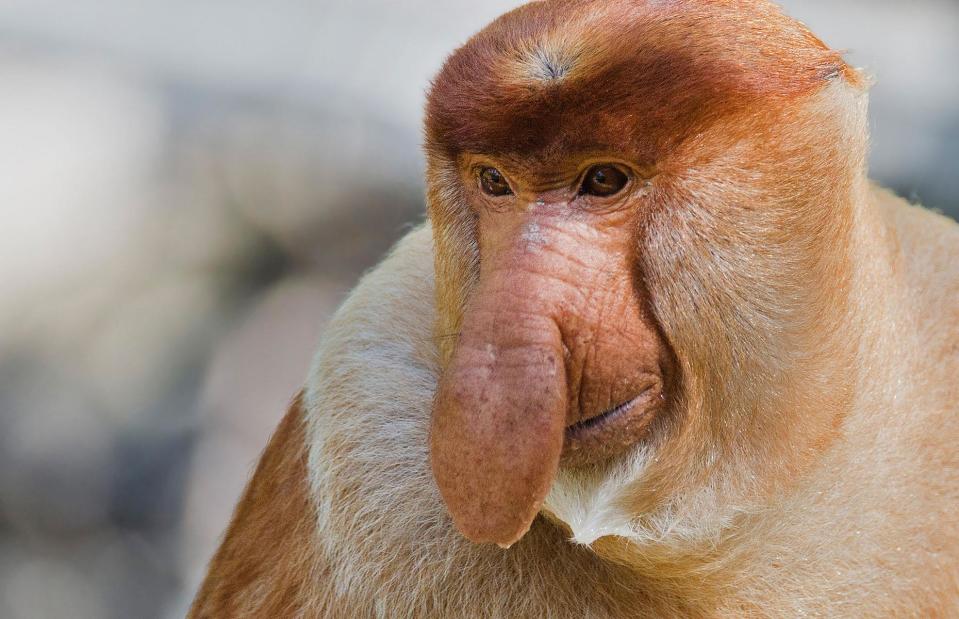
blickwinkel/Alamy Stock Photo
In the animal kingdom, if you have a large bulbous nose that hangs so low it droops over your mouth, chances are it will feature in your name. And so it is for the world-famous proboscis monkey, native to the island of Borneo. Combined with the male proboscis monkey’s hooded brow and protruding belly, it’s a look that gives off old man vibes. But to females a large nose, and the louder calls it allows, are seemingly very attractive.
Hyena
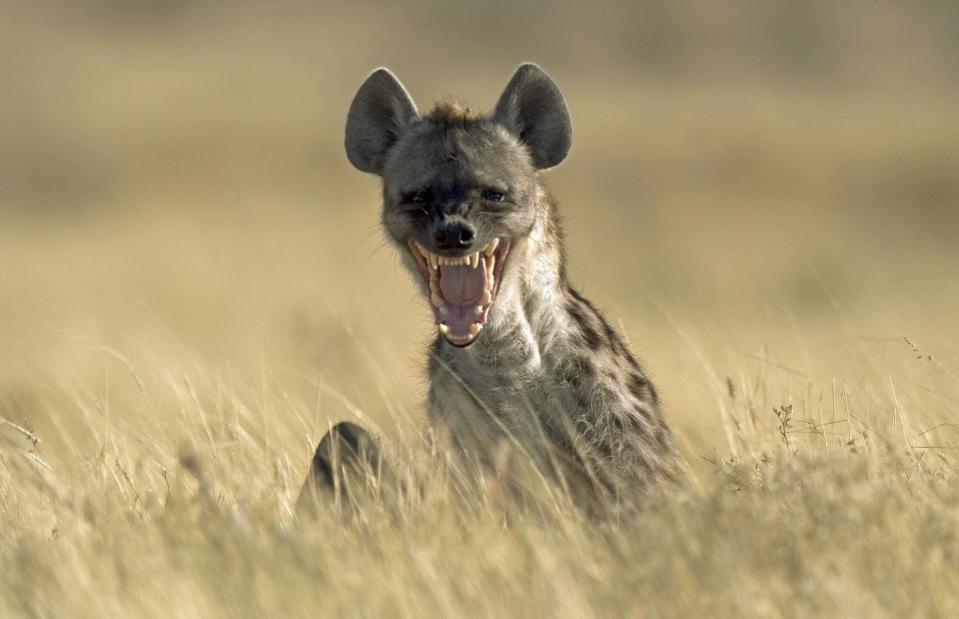
Juniors Bildarchiv GmbH/Alamy Stock Photo
Opportunistic and sly, the hyena makes an easy villain in the African savannah. Their long forelegs, powerful frame and vicious-looking teeth are not aesthetically pleasing, and their habit of communicating through moans, giggles and whoops is not endearing either. But they are scarily effective, sniffing out carrion from miles away and dealing with it with startling efficiency.
Goblin Shark
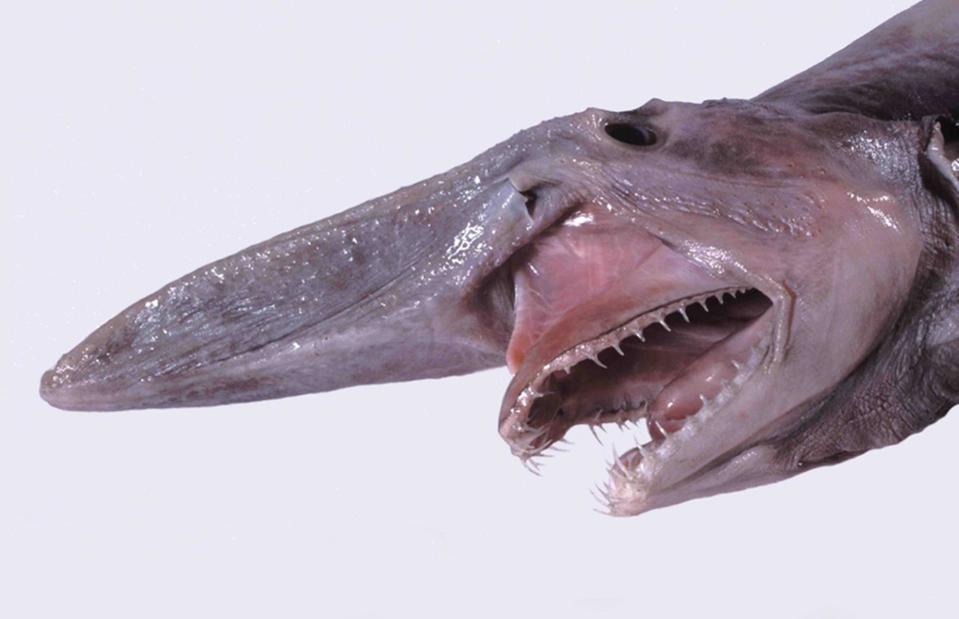
Dianne Bray/Museum Victoria/Wikimedia/CC BY 3.0
The goblin shark may be one of the most unattractive sharks on the planet, but its distinctive features make it very efficient at catching prey in the deep waters off Japan. Its long protruding forehead spike is covered with special sensing organs that help it detect electric fields in the dark. And its exposed jaw and teeth can be extended to the length of its snout to help it ambush prey. It's not pretty, but it works.
Purple Frog
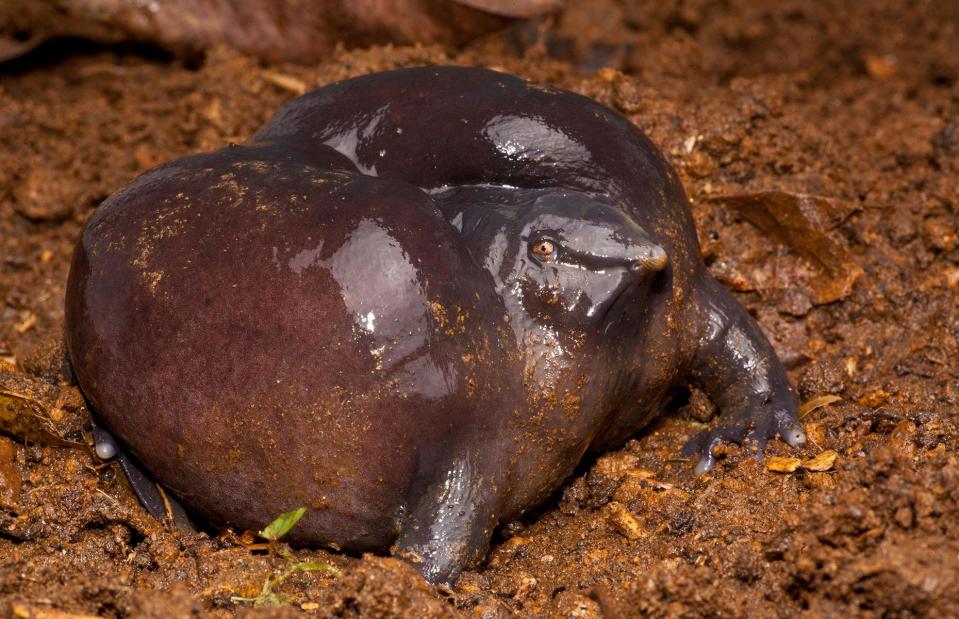
Nature Picture Library/Alamy Stock Photo
Round and bloated with stubby little legs, the purple frog found in the Western Ghats of India was never going to win any beauty contests. Add a funny undersized head and they’re worthy entries on the world's ugliest list. Their mouths are so small they can only eat termites and, for once, their local nickname 'pignose frog' is actually quite flattering.
Warthog
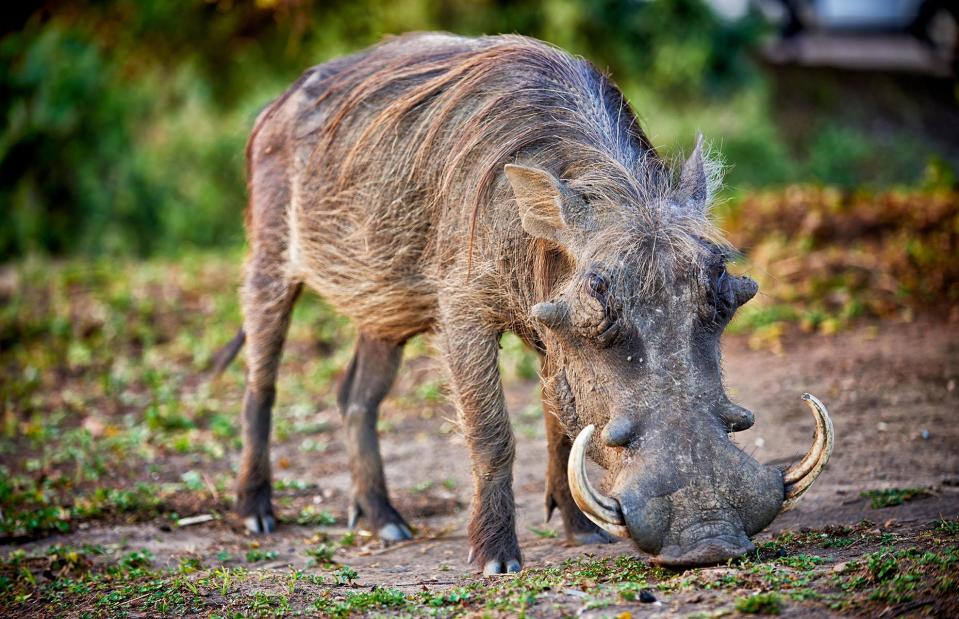
Juergen Ritterbach/Alamy Stock Photo
Warthogs haven’t got a lot going for them, aesthetically speaking. Their large, flat heads are covered with protective bumps known as warts. They are mostly bald, with sparse hair and a thicker mane on their backs, and they have four sharp tusks that make them look distinctly aggressive. They’re the ugly, gnarly cousin of the more placid domestic pig, but perfectly adapted to the hardscrabble life of the African savannah, capable of facing down a hungry lion.
Hellbender
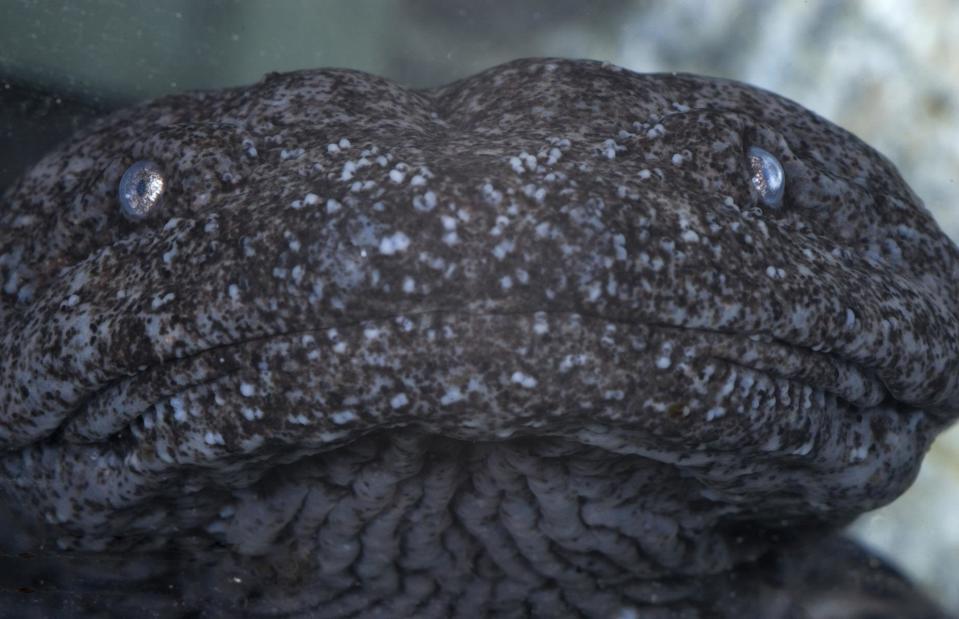
LPA/Alamy Stock Photo
A hellbender is a large, fully aquatic amphibian with a flat head, wrinkled body and paddle-shaped tail. They live throughout the Appalachian region and are the largest salamanders in North America, growing up to 29 inches (73cm) and weighing up to 2.3kg (5lbs). That they are also known as 'snot otters' tells you everything you need to know.
Lake Titicaca Frog
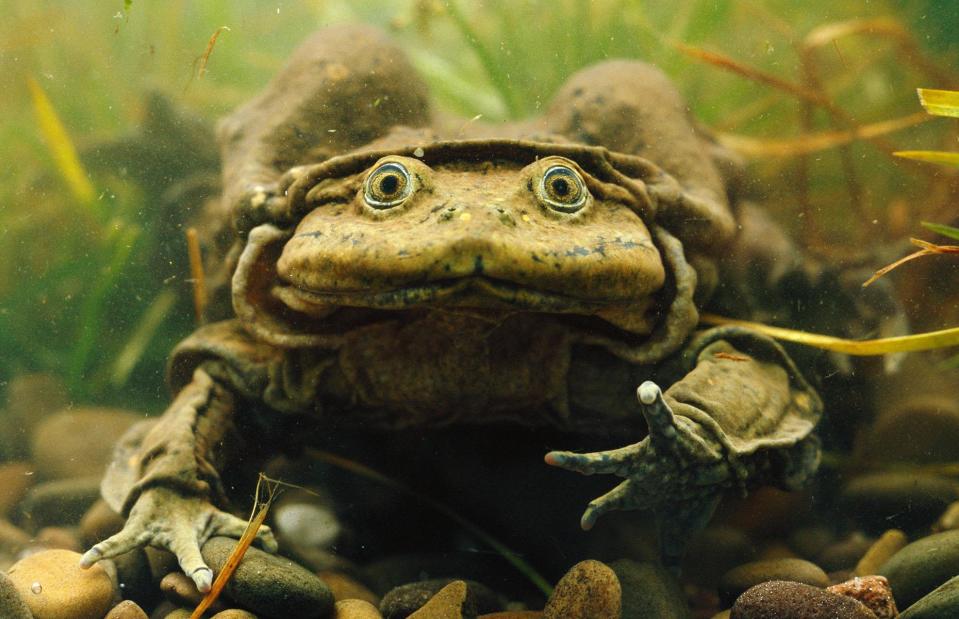
Minden Pictures/Alamy Stock Photo
Almost exclusively found in Lake Titicaca, high in the Andes and one of the highest navigable bodies of water in the world, the Lake Titicaca Frog is listed as critically endangered. That's probably because it's considered to be an aphrodisiac when mixed with honey and the roots of a local plant, and consumed as a thick shake.
Red-Lipped Batfish
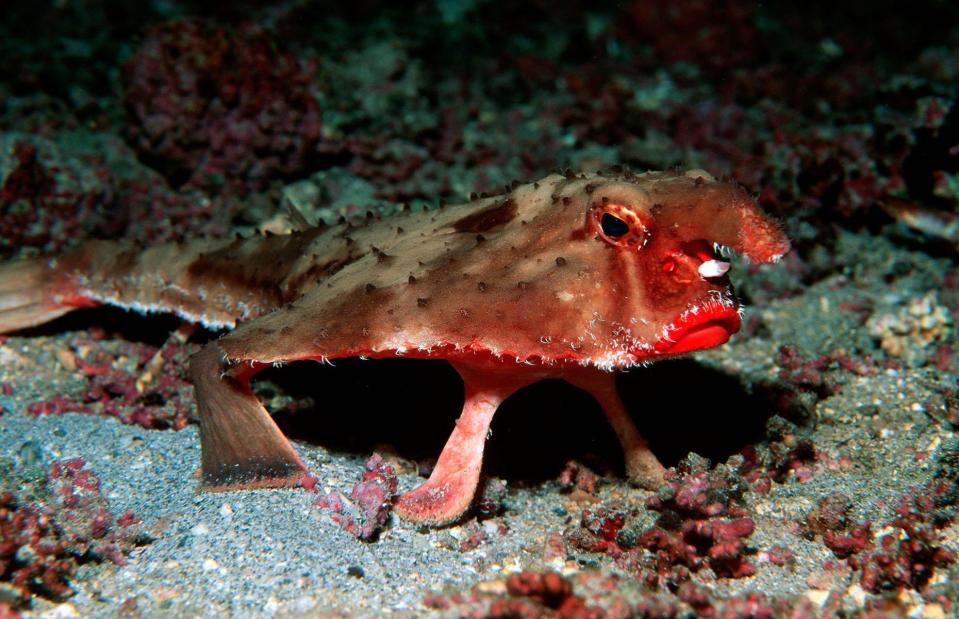
Mark Conlin/Alamy Stock Photo
The red-lipped batfish is endemic to the Galapagos Islands. It can be found scuttling about the sandy bottom of reefs or on the ocean floor, with a snout that looks like a large nose and a pair of bright red lips that look like they've just been lathered with fluorescent lipstick. They are positive proof that make-up can only achieve so much.
Sphynx Cat
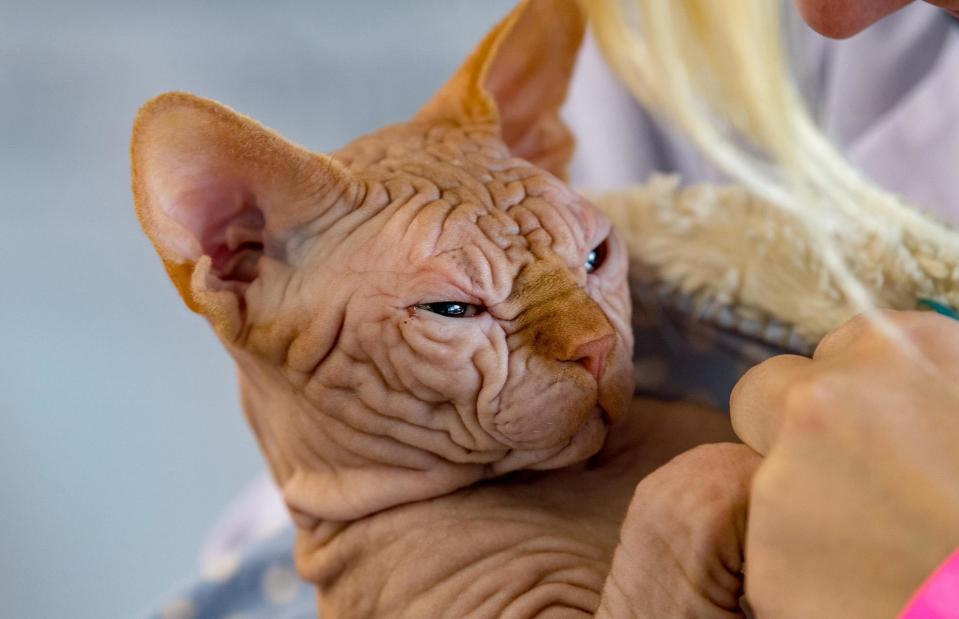
Andrea Izzotti/Alamy Stock Photo
It’s not the Sphynx cat’s fault that it looks the way it does. The breed first occurred as a natural mutation in a litter of domestic shorthaired cats in Canada and was further developed by breeding with the Devon Rex. Their wrinkly and hairless appearance doesn’t appeal to all cat lovers, but they are said to be loyal and highly intelligent. Unsurprisingly, they feel the chill when the weather turns cold.
Lappet-Faced Vulture
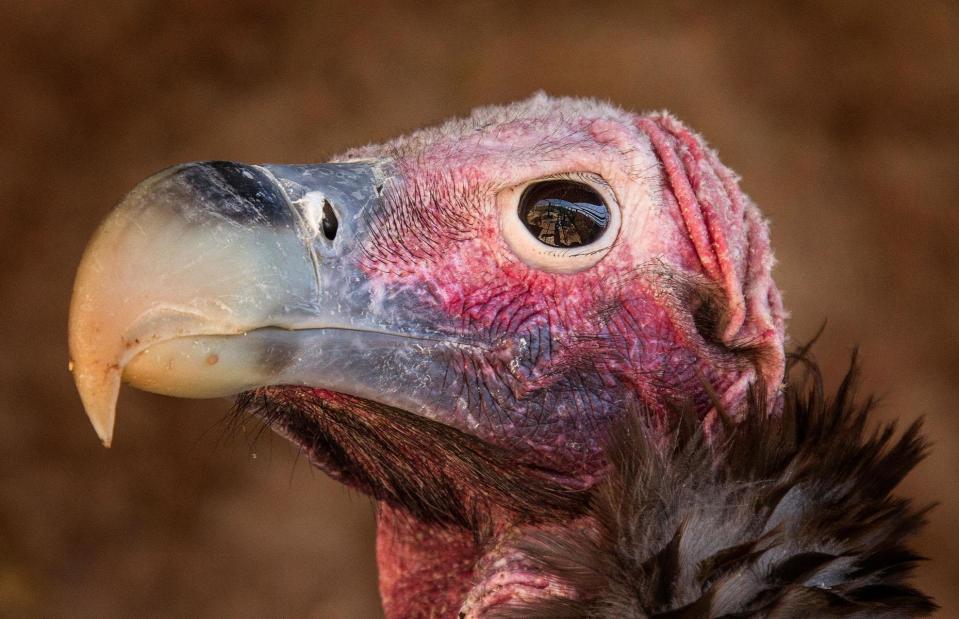
Scott Hurd/Alamy Stock Photo
The lappet-faced vulture lives in Africa and spends most of its days flying long distances in search of carcasses to pick over. Their arched beaks can poke through the toughest animal skin and their reddish, featherless heads mean their feathers remain unsoiled even after the messiest of meals. They take their name from the large, unattractive skin folds, or lappets, that hang along the sides of their heads.
Atlantic Wolffish
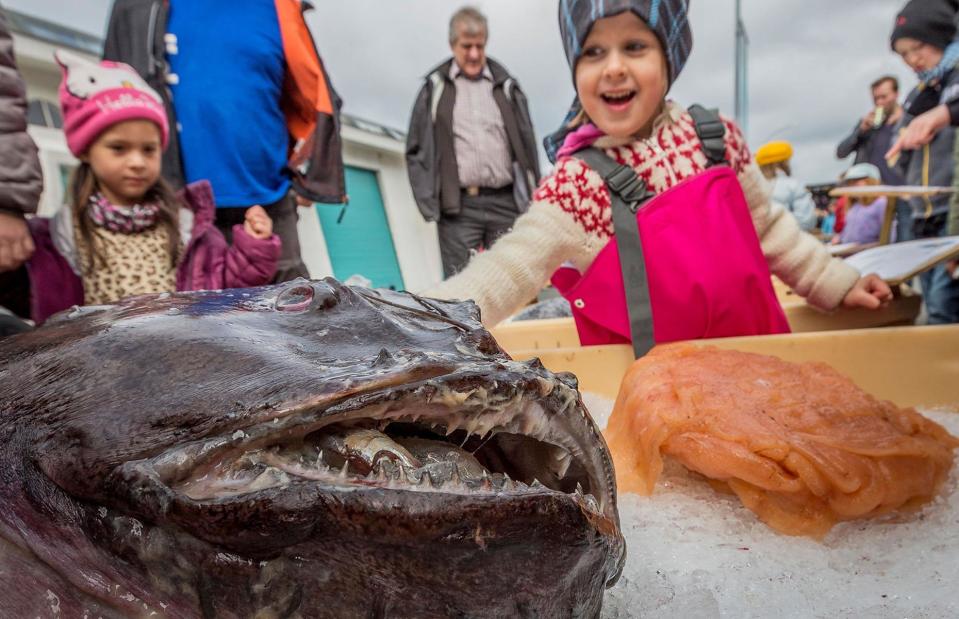
ARCTIC IMAGES/Alamy Stock Photo
The Atlantic wolffish is a fearsome-looking species that always causes a stir when landed by anglers. It has small eyes and a large mouth filled with sharp teeth and crushing molars that look like they could cause real damage. The fish are edible and usually sold as pre-prepared fillets thanks to their otherwise unflattering look, and they're often served under different names. If you've eaten scotch halibut, you’ve eaten Atlantic wolffish.
Hammer-Headed Bat
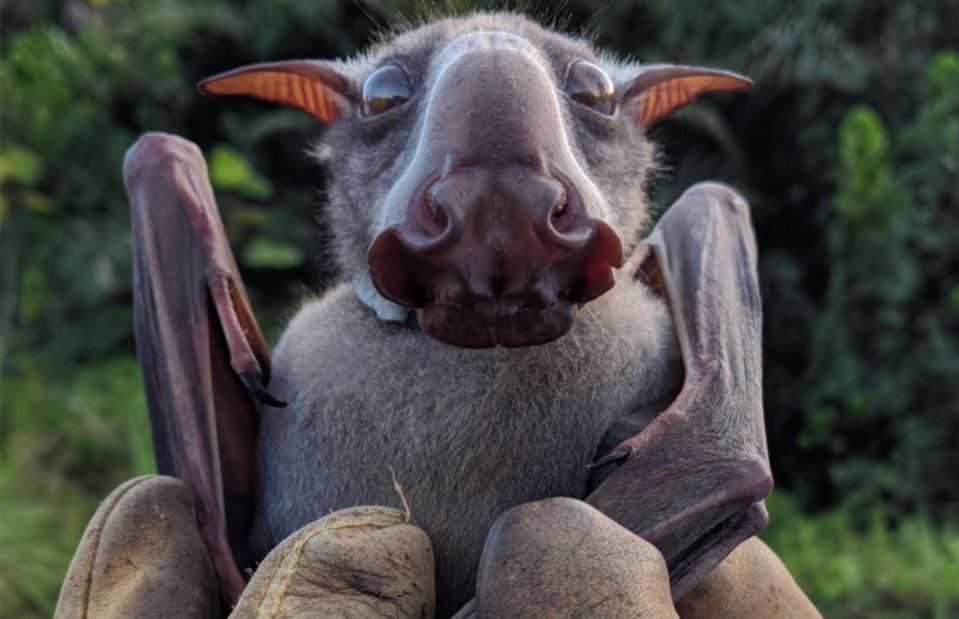
Wikimedia/Public Domain
The hammer-headed bat is the largest bat in Africa, with a wingspan of up to three feet (1m). They feast on figs, bananas and mangos across Central and West Africa, where they are sometimes prized as bush meat. The males have large and distinctive heads with huge, resonating chambers that echo and amplify their mating calls. They are also known as 'big-lipped bats' and are known to carry Ebola antibodies.
Chinese Crested Dog
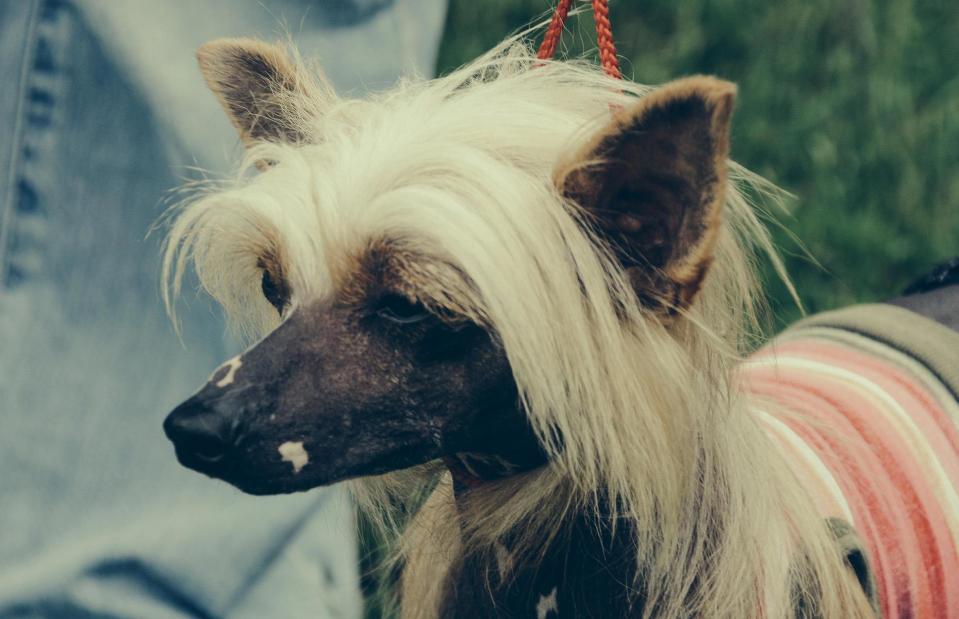
Mykola Komarovskyy/Alamy Stock Photo
The Chinese crested is a breed of toy dog thought to have originated in Africa or Mexico, but brought to China by merchants. It is largely hairless barring some tufts on its head, tail and lower legs. They are prone to sunburn and skin problems. In 2009 a Chinese crested dog called Miss Ellie was crowned 'world’s ugliest dog' by Animal Planet.
Horseshoe Bat
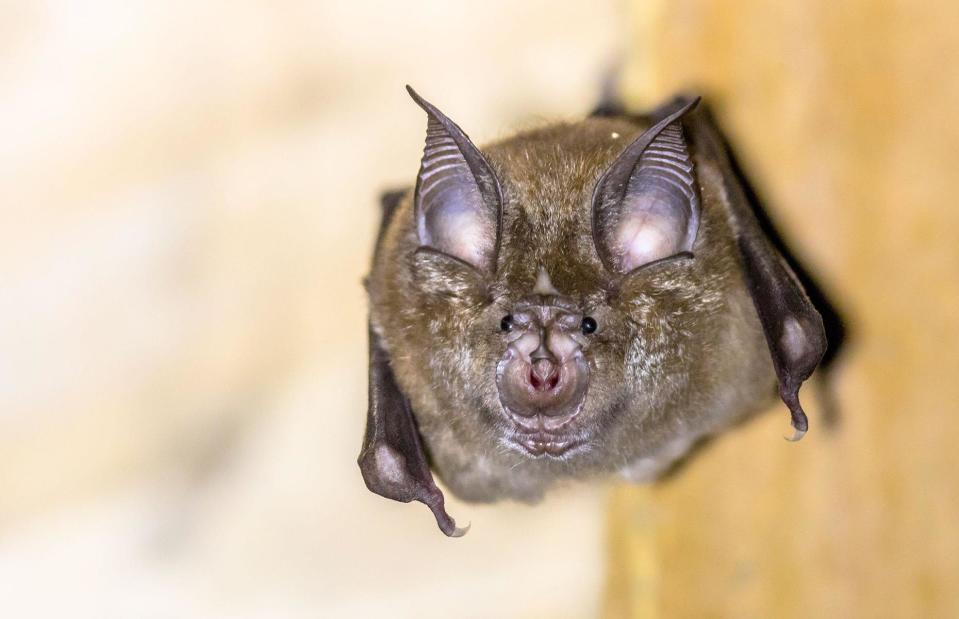
Rudmer Zwerver/Alamy Stock Photo
When you spend most of the day hanging upside down in the dark, what you look like isn’t much of a concern. Which is just as well for the horseshoe bat. It has a fleshy nose that is shaped like a horseshoe, making its face look like it's been hit by, well, a bat. Formerly cave-dwellers, this unattractive mammal can now be found in abandoned houses and barns, disused mines, tunnels and cellars.
Sea Pig
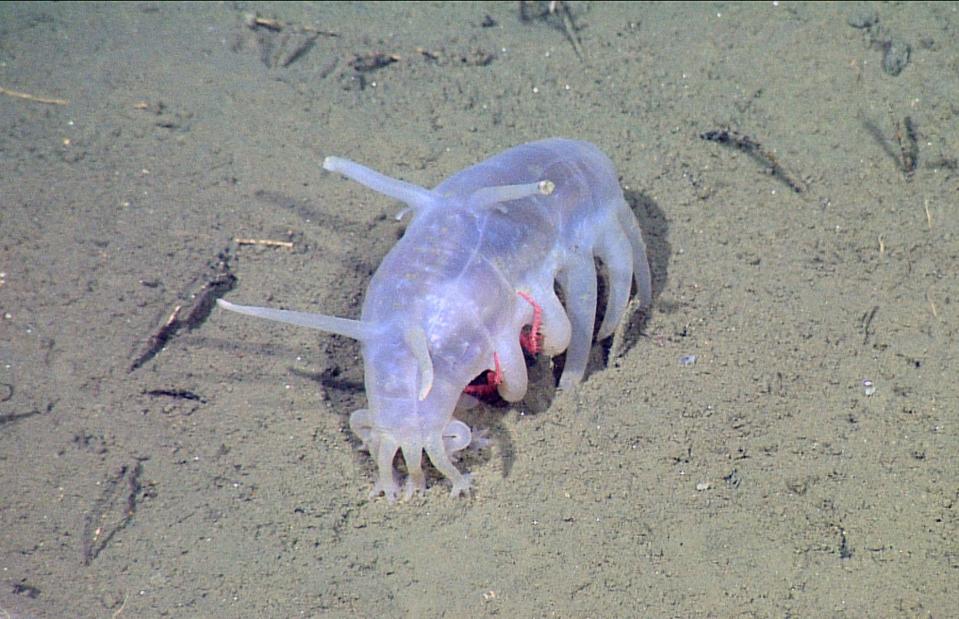
NOAA/MBARI/Wikimedia/CC BY-SA 3.0
Scientifically known as scotoplanes globosa, sea pigs are members of the sea cucumber family, a genus not known for its good looks. You’ll find them in the coldest and deepest parts of the ocean, and in such numbers that they make up more than 95% of the weight of the animals on some parts of the seafloor. They're not lookers and their dietary habits also leave much to be desired – they feed on all the matter and goo on the bottom of the ocean that no other creature fancies.
Dugong
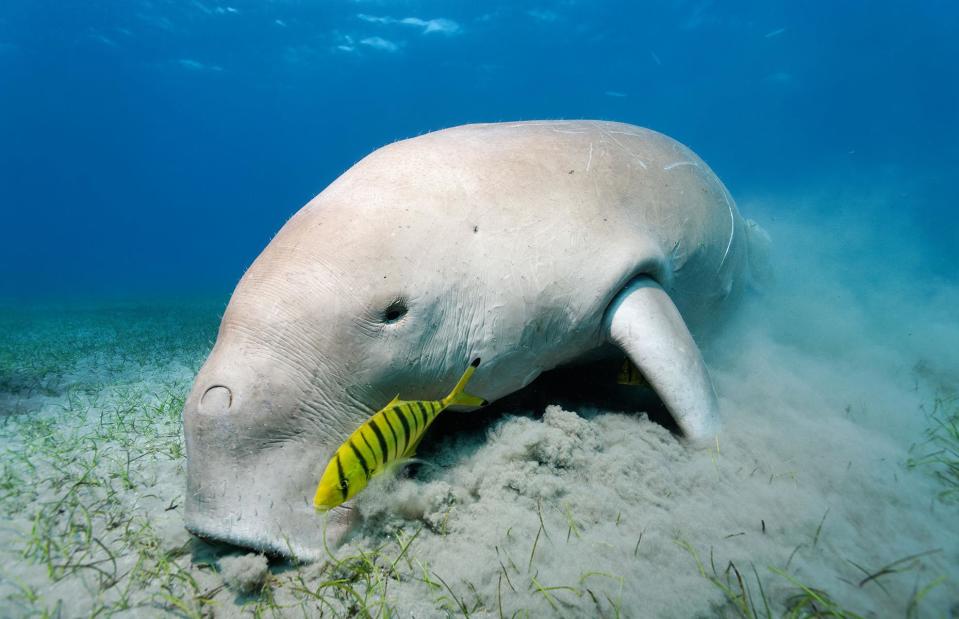
imageBROKER.com GmbH & Co. KG/Alamy Stock Photo
It says a lot about the hardships of life at sea during the Age of Discovery that some sailors mistook these lumbering creatures for mermaids. So much so that the scientific name for the dugong, and its close cousin the manatees, is 'sirenia'. Also known as sea cows, their distinctive bulbous noses are actually very effective vacuum cleaners, hoovering nutritious seagrass off the seafloor.
Now discover the most amazing wildlife experiences around the world


